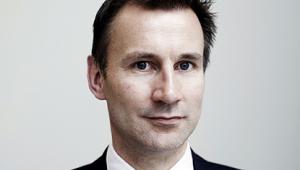04 February 2000
Meanwhile, Health Secretary Alan Milburn this week admitted that the NHS 'requires an increase in the number of beds in the whole system'.
He will be publishing the findings of the National Beds Inquiry later this month.
This will, however, show that there is not any simple link between the number of acute beds, the management of emergencies and elective waiting times.
Questions about the lack of available beds resurfaced at the beginning of January when hospitals were stretched to the limits by a flu outbreak. Routine operations were cancelled to free beds for emergency admissions and patients were ferried across the regions when local hospitals ran out of space.
Though the flu crisis has ended, the Association of Community Health Councils for England and Wales claimed that patients were still waiting longer than the four-hour limit. In a survey of 240 accident and emergency units around the UK on Monday, it found a 71-year-old woman who had been waiting 40 hours and 40 minutes on a trolley at Northwick Park Hospital in Harrow. A 46-year-old woman had been waiting to be admitted for more than 25 hours at King George hospital in Redbridge. The full survey will be published at the end of the month.
The findings are sure to put pressure on the government to increase beds. The average number of available acute beds fell by 20,000 between 1987/88 and 1997/98 and a review of the health service's need for beds, ordered last year by then health secretary Frank Dobson, has yet to be published.
Donna Covey, the association's director, said: 'These shocking and distressing figures show that people are right to be alarmed about the state of the health service. This survey shows that the tragic cases highlighted during the flu outbreak are indicative of a deeper crisis in the NHS.'
The Department of Health questioned some of the examples cited in the survey, claiming that the association had included patients who were in observation wards.
PFfeb2000


















